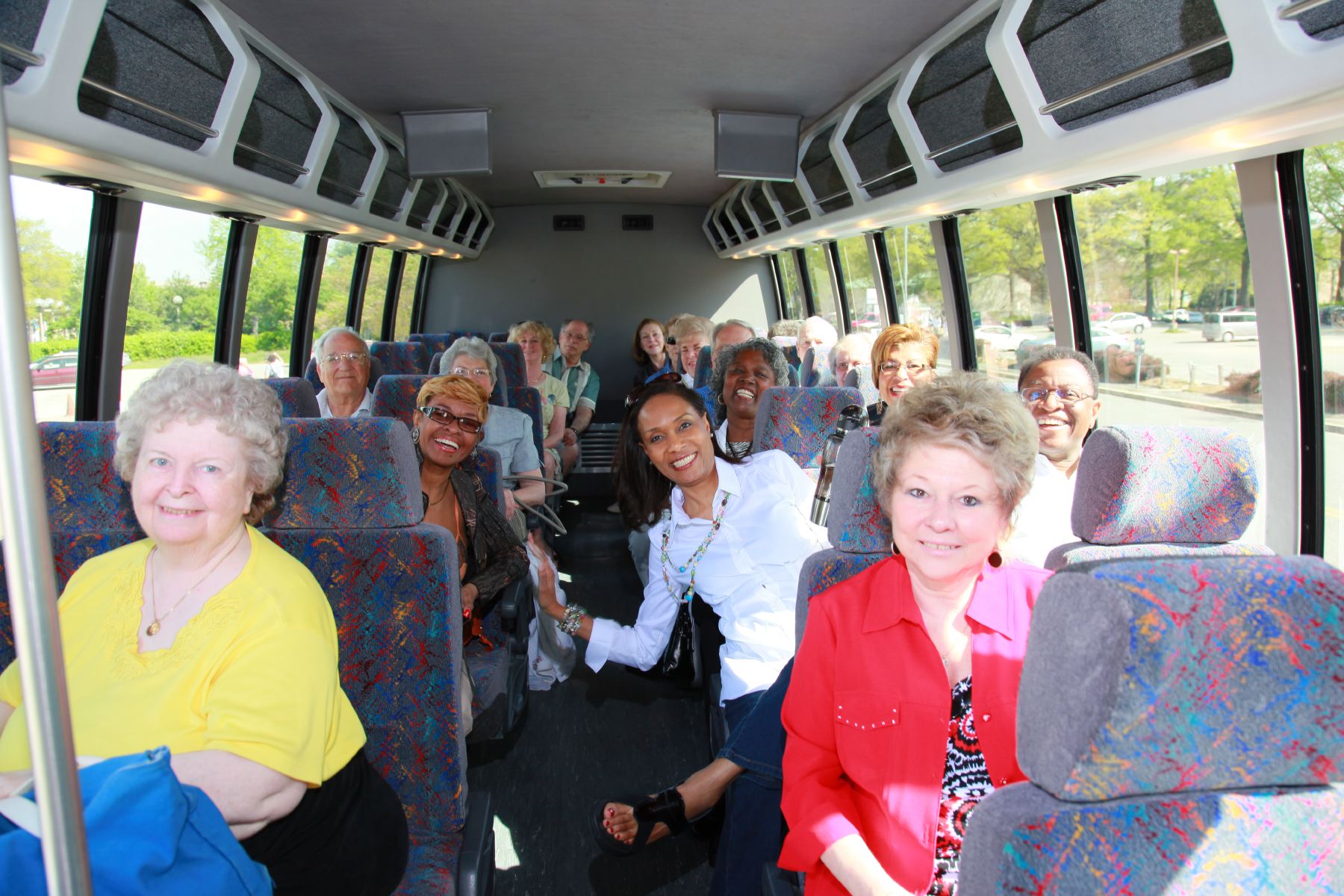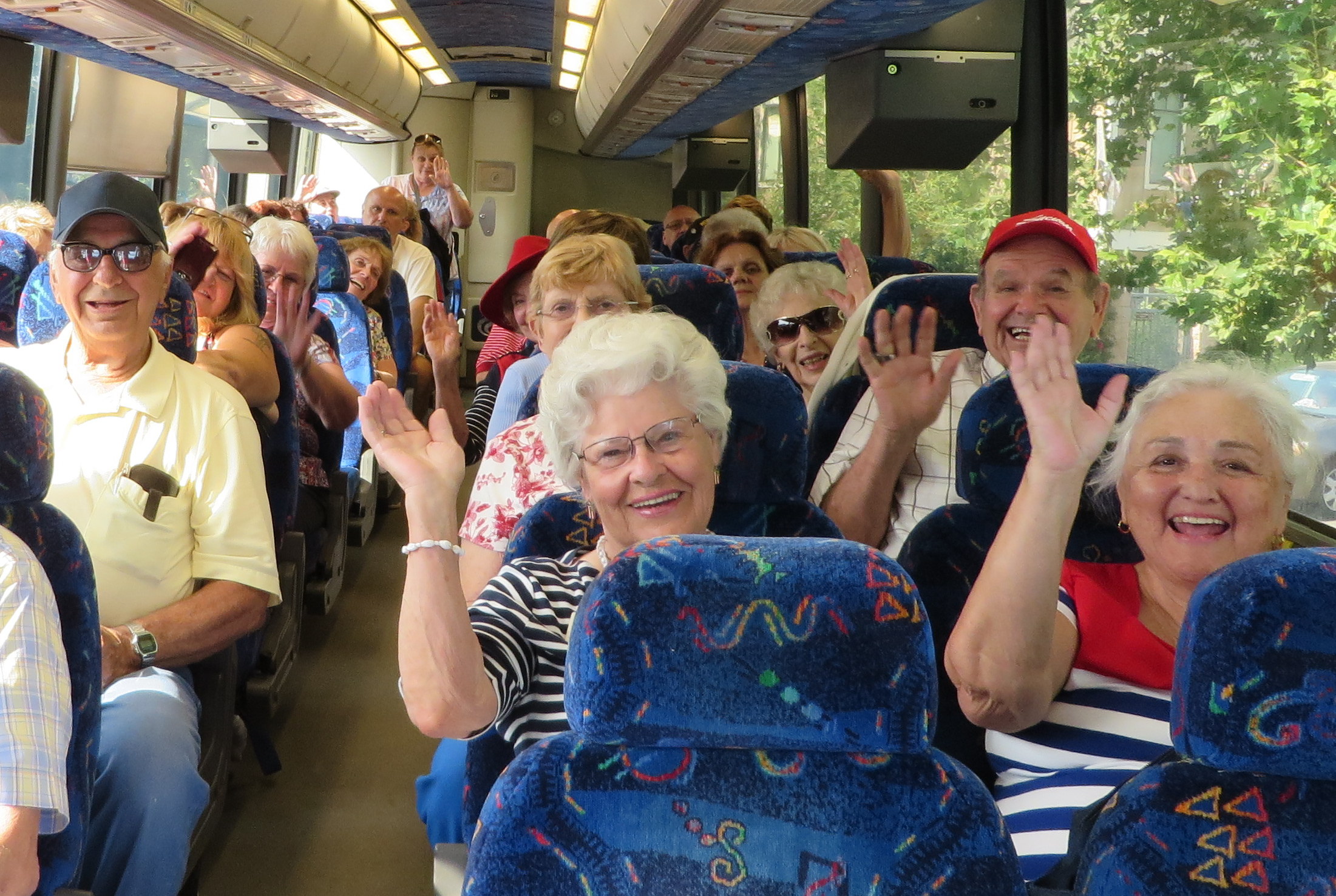Senior travel trips are experiencing a surge in popularity, as retirees seek enriching experiences and fulfilling adventures. This isn’t just about relaxation; it’s about exploring new cultures, embracing new challenges, and creating lasting memories. From luxurious cruises to adventurous expeditions, the options are vast and cater to diverse interests and mobility levels. This guide delves into the essential aspects of planning a successful and enjoyable senior travel experience, addressing everything from budgeting and accessibility to health considerations and choosing the perfect destination.
Whether you’re dreaming of exploring ancient ruins, relaxing on pristine beaches, or embarking on a thrilling safari, careful planning is key to a memorable trip. This comprehensive guide provides practical advice and resources to help seniors navigate the complexities of travel, ensuring a safe, comfortable, and enriching experience.
Types of Senior Travel Trips
Planning a senior travel trip requires careful consideration of individual preferences and physical capabilities. The diverse options available cater to a wide range of interests and budgets, ensuring a memorable and fulfilling experience for every traveler. Choosing the right type of trip is crucial for maximizing enjoyment and minimizing stress.
Senior Travel Trip Options Compared
The following table compares several popular senior travel trip options, highlighting key differences in cost, activity level, and social interaction. This comparison aids in identifying the best fit for specific needs and preferences.
| Trip Type | Cost | Activity Level | Social Interaction |
|---|---|---|---|
| Cruises | Medium to High (varies greatly depending on cabin class and itinerary) | Low to Medium (options for active excursions or relaxing onboard) | High (constant opportunities for socializing with fellow passengers and crew) |
| Escorted Tours | Medium to High (depends on destination, length, and inclusions) | Low to Medium (structured itineraries with varying levels of physical activity) | Medium to High (group travel with opportunities for interaction with fellow travelers and guides) |
| Independent Travel | Low to High (highly variable based on travel style and choices) | Low to High (complete control over pace and activities) | Low to Medium (depends on traveler’s choice of accommodation and activities) |
| Adventure Travel | Medium to High (often includes specialized equipment and guides) | Medium to High (physically demanding activities like hiking or kayaking) | Medium (often involves small group travel with guides) |
| Wellness Retreats | Medium to High (often includes spa treatments and specialized programs) | Low to Medium (focus on relaxation and rejuvenation, with optional activities) | Medium (opportunities for interaction with other participants and staff) |
Cruises: A Detailed Look, Senior travel trips
Cruises offer a convenient and all-inclusive travel experience. Passengers enjoy comfortable accommodations, diverse dining options, and onboard entertainment. Excursions to various destinations are readily available, catering to different interests. However, the cost can be substantial, and some individuals may find the constant social interaction overwhelming. The ideal traveler profile includes those seeking a relaxing, all-inclusive vacation with built-in entertainment and opportunities for socialization.
Escorted Tours: A Comprehensive Overview
Escorted tours provide a structured itinerary with pre-arranged transportation, accommodations, and guided excursions. This eliminates the need for independent planning and navigation. While offering a convenient and worry-free travel experience, escorted tours may lack flexibility and spontaneity. The ideal traveler profile includes those who prefer a structured itinerary and the convenience of having all arrangements handled for them.
They benefit from the expertise of a guide and the company of fellow travelers.
Independent Travel: Freedom and Flexibility
Independent travel offers maximum flexibility and control over the itinerary. Travelers can choose their own pace, activities, and accommodations, allowing for a personalized experience. However, it requires more planning and self-reliance. This option suits experienced travelers who are comfortable with independent navigation and decision-making. The ideal traveler profile includes seasoned travelers who value autonomy and the freedom to explore at their own pace.
Adventure Travel: Thrills and Challenges
Adventure travel caters to active seniors seeking physically demanding activities such as hiking, kayaking, or wildlife safaris. These trips often involve challenging terrains and require a good level of physical fitness. While rewarding and exhilarating, adventure travel may not be suitable for all seniors. The ideal traveler profile includes those with a high level of physical fitness and a willingness to embrace challenges.
Wellness Retreats: Rejuvenation and Relaxation
Wellness retreats prioritize relaxation, rejuvenation, and well-being. They typically include spa treatments, yoga classes, meditation sessions, and healthy dining options. These trips offer a peaceful escape from daily stresses and a chance to focus on self-care. The ideal traveler profile includes those seeking relaxation, stress reduction, and an opportunity to improve their physical and mental well-being.
Planning Senior Travel Trips

Planning a senior travel trip requires careful consideration of various factors to ensure a safe, enjoyable, and memorable experience. This involves meticulous preparation across several key areas, from budgeting and booking to accessibility and packing. Thorough planning minimizes stress and maximizes the pleasure of the journey.
Budgeting for Senior Travel
Creating a realistic budget is paramount. Consider all expenses: flights, accommodation, activities, meals, transportation, travel insurance, and spending money. Utilize online budgeting tools or spreadsheets to track expenses and ensure you stay within your financial limits. Look for senior discounts on flights, attractions, and accommodations. For example, AARP offers discounts on various travel services.
Booking flights and accommodations well in advance can often lead to significant savings. Prioritizing needs over wants can also help in controlling costs. Consider all-inclusive packages which can simplify budgeting by bundling multiple services.
In this topic, you find that budget travel for seniors is very useful.
Booking Flights and Accommodations
Booking flights and accommodations should be done early, especially during peak travel seasons, to secure the best prices and availability. Utilize online travel agencies or directly contact airlines and hotels for potential senior discounts. When booking flights, opt for direct flights whenever possible to minimize potential delays and stress. Consider the proximity of accommodations to attractions and transportation hubs.
Look for hotels with accessible features, such as elevators, ramps, and roll-in showers, if needed. Read reviews carefully, paying close attention to comments about accessibility and senior-friendliness.
Arranging Transportation
Transportation needs vary depending on the destination and itinerary. Consider using ride-sharing services, taxis, or public transportation, but pre-arrange transportation whenever possible, especially for airport transfers. For longer distances, consider renting a car only if you are comfortable driving in unfamiliar areas. Ensure the vehicle is suitable for your needs, and always factor in potential driving fatigue.
In some destinations, organized tours offer convenient and often inclusive transportation options. Researching transportation options beforehand is crucial for a smooth travel experience.
Choosing Accessible and Senior-Friendly Accommodations and Destinations
Choosing accessible and senior-friendly accommodations and destinations is crucial for a comfortable and safe trip. Look for hotels and resorts that offer accessible rooms with features like grab bars, roll-in showers, and wider doorways. Destinations should be chosen based on their accessibility, considering factors such as flat terrain, easy navigation, and availability of accessible transportation. Many destinations cater specifically to senior travelers, offering slower-paced itineraries and easy access to attractions.
For example, destinations like Sedona, Arizona, offer scenic beauty with relatively easy access to trails and viewpoints. Always verify accessibility features before booking.
Essential Documents and Packing Checklist
Before departure, prepare a comprehensive checklist of essential documents and items. This includes passports, visas (if required), travel insurance information, flight and accommodation confirmations, and any necessary medical prescriptions. Pack comfortable and practical clothing suitable for the climate and planned activities. Include any necessary medical supplies, medications, and assistive devices. Don’t forget essential toiletries, a first-aid kit, and comfortable walking shoes.
Consider a lightweight, easily manageable suitcase. A well-organized packing list reduces stress and ensures you have everything you need.
Budgeting for Senior Travel

Planning a senior travel trip requires careful budgeting to ensure a comfortable and enjoyable experience without exceeding financial limits. Successful budgeting involves understanding your spending habits, researching destinations, and utilizing various cost-saving strategies. This involves considering both all-inclusive packages and independent travel planning.
All-Inclusive Packages versus Independent Travel Planning
All-inclusive packages offer a streamlined approach, bundling flights, accommodation, and often meals and activities into a single price. This simplifies budgeting, providing a clear upfront cost. However, less flexibility exists in terms of choosing specific hotels, activities, or dining options. Independent travel planning, conversely, offers greater control and customization but requires more meticulous budgeting. Costs for flights, accommodation, activities, meals, and transportation must be individually researched and accounted for.
This method allows for tailoring the trip to specific preferences and potentially finding better deals by booking elements separately. For example, a senior couple might find better value booking flights three months in advance and choosing a smaller, family-run hotel instead of a large resort chain, while an all-inclusive resort might suit a senior who prefers a hassle-free trip with minimal planning.
Cost-Effective Travel Options
Several strategies can significantly reduce travel costs for seniors. Consider traveling during the shoulder season (the periods between peak and off-peak seasons), which typically offers lower prices on flights and accommodation. Off-peak travel, such as visiting popular destinations during the winter months, can also result in significant savings. Choosing budget-friendly accommodation, such as guesthouses, hostels (dorm-style or private rooms), or Airbnb options, can significantly lower lodging expenses.
Similarly, opting for local transportation such as buses or trains instead of taxis or rental cars can be more economical. For instance, a trip to Europe during the autumn months might offer stunning scenery at a fraction of the peak summer cost.
Discount and Deal Finding Strategies
Numerous resources exist to help seniors find travel discounts. Many airlines and hotels offer senior discounts, often starting at age 60 or 65. Organizations such as AARP (American Association of Retired Persons) frequently provide exclusive travel deals and discounts to their members. Websites specializing in travel deals and comparison shopping tools can also help uncover significant savings.
Travel insurance, while often an additional expense, can provide peace of mind and potentially save money in case of unforeseen circumstances such as medical emergencies or trip cancellations. For example, an AARP member might find a discounted cruise package, while a comparison website might reveal cheaper flights by using flexible travel dates.
Budgeting Tools and Techniques
Creating a detailed travel budget is crucial. Start by establishing a realistic overall budget. Then, break down expenses into categories: flights, accommodation, activities, food, transportation, and miscellaneous expenses. Use budgeting apps or spreadsheets to track spending and ensure you stay within your allocated budget. Consider setting aside a contingency fund for unexpected expenses.
For instance, a spreadsheet detailing daily expenses for a two-week trip to Italy might include specific allocations for train tickets, museum entry fees, and meals, leaving a buffer for unplanned activities or unexpected costs.
Transportation for Senior Travelers
Choosing the right mode of transportation is crucial for a comfortable and enjoyable senior travel experience. Factors such as accessibility, comfort levels, and personal mobility needs should be carefully considered when planning any trip. This section Artikels various transportation options and their respective advantages and disadvantages for senior travelers.
Air Travel for Seniors
Air travel offers speed and efficiency for long-distance journeys. However, navigating airports and flying can present challenges for seniors with mobility issues. Many airlines offer assistance programs for elderly passengers, including wheelchair assistance, priority boarding, and pre-boarding. It’s advisable to book assistance well in advance and familiarize yourself with the specific airline’s policies. Consider booking aisle seats for easier access to restrooms and to avoid disturbing fellow passengers.
The disadvantages include potential discomfort from long flights, potential delays, and the need to manage luggage.
Cruise Ship Travel
Cruises offer an all-inclusive travel experience with onboard amenities and entertainment, making them a popular choice for seniors. The accessibility features vary between cruise lines, so it is essential to research accessibility features beforehand. Many cruises cater to older travelers, offering accessible cabins, elevators, and assistance with embarking and disembarking. The advantages include convenient transportation between destinations, and a relaxed travel experience.
However, the confined environment might not suit all seniors, and seasickness is a potential concern.
Train Travel for Seniors
Train travel provides a more relaxed and scenic journey compared to air travel. Many train lines offer accessible accommodations, including wheelchair spaces and assistance with boarding. The slower pace of train travel can be beneficial for seniors who prefer a less rushed experience. The advantages include spacious seating, onboard amenities, and the opportunity to enjoy the scenery.
Disadvantages include potentially longer travel times compared to air travel and limited accessibility on some older train lines. Booking in advance is recommended, especially for accessible seating.
Rental Cars for Seniors
Rental cars offer flexibility and independence for exploring destinations at one’s own pace. However, this option requires a certain level of mobility and driving ability. Seniors should carefully assess their driving capabilities and consider the driving conditions in their destination before opting for a rental car. Consider renting a vehicle with adaptive driving aids if needed. The advantages include independence and the ability to explore at one’s own pace.
The disadvantages include potential fatigue from driving, navigating unfamiliar roads, and parking challenges. It’s crucial to choose a vehicle suitable for one’s physical capabilities.
Finding and Booking Accessible Transportation
When booking transportation, explicitly state any accessibility needs. Contact the airline, cruise line, or train company directly to discuss specific requirements and available assistance. Many websites offer filters for accessible transportation options. Utilize these filters to narrow your search and find suitable options. Websites specializing in accessible travel can provide further guidance and resources.
For rental cars, inquire about vehicle modifications and accessibility features when making your reservation. Confirm all arrangements well in advance to avoid last-minute complications.
Travel Companions and Support
Planning a senior travel experience often involves careful consideration of companionship and support systems. The right travel companions or support services can significantly enhance safety, enjoyment, and overall well-being during a trip. Conversely, a lack of adequate support can lead to unforeseen difficulties and diminished travel satisfaction.The benefits of traveling with a companion or utilizing professional travel assistance are numerous.
A companion can provide assistance with tasks such as navigating unfamiliar environments, managing luggage, and offering emotional support. Professional services, on the other hand, offer specialized care tailored to individual needs, including medical assistance and personalized itinerary management. Choosing the right support system depends largely on individual needs and preferences.
Companionship and Shared Responsibility
Traveling with a friend, family member, or spouse offers numerous advantages. Shared responsibilities alleviate the burden on any one individual, reducing stress and increasing enjoyment. A companion can provide assistance with navigation, luggage handling, and emergency situations. Furthermore, shared experiences create lasting memories and strengthen bonds. For instance, a couple traveling together can divide responsibilities, with one handling logistics while the other focuses on enjoying the sights.
The shared experience fosters a sense of mutual support and camaraderie, enhancing the overall travel experience.
Travel Assistance Services for Senior Travelers
Several services cater specifically to the needs of senior travelers with mobility challenges or other requirements. These services range from escorted group tours with specialized support to personalized concierge services offering assistance with bookings, transportation, and on-site support. Some agencies provide medical assistance and 24/7 support hotlines. For example, companies specializing in accessible travel arrange wheelchair-accessible transportation and accommodations, ensuring a seamless and comfortable journey for individuals with mobility limitations.
This tailored support allows seniors to travel with confidence, knowing assistance is readily available should they need it.
Communication and Coordination in Travel Groups
Effective communication and coordination are crucial for a successful group trip, particularly for senior travelers. Establishing clear communication channels, such as a group chat or regular meetings, allows for efficient information sharing and problem-solving. A designated point person can handle logistics and address any issues that may arise. For instance, a pre-trip meeting to discuss itinerary details, potential challenges, and emergency contact information can significantly reduce stress and enhance overall group cohesion.
Regular check-ins throughout the trip ensure everyone feels supported and informed, leading to a more enjoyable and less stressful experience for all participants.
Planning a senior travel trip requires careful consideration of various factors, but the rewards are immeasurable. By understanding your needs, researching your options, and prioritizing safety and well-being, you can create an unforgettable journey. Remember, the perfect trip is the one that aligns with your interests, budget, and physical capabilities. Embrace the adventure, explore the world, and create memories that will last a lifetime.
The journey itself is a testament to the spirit of adventure that transcends age.


